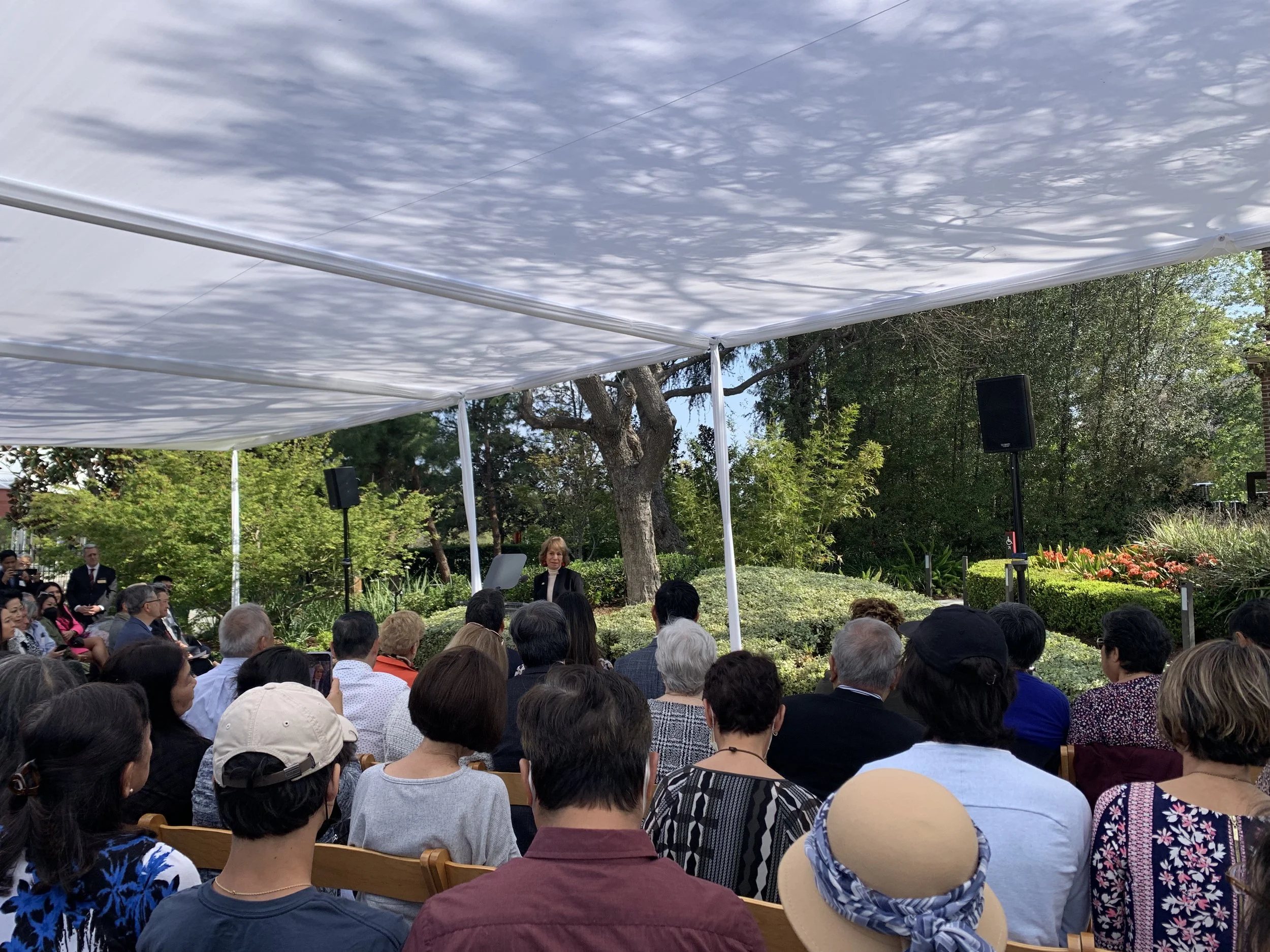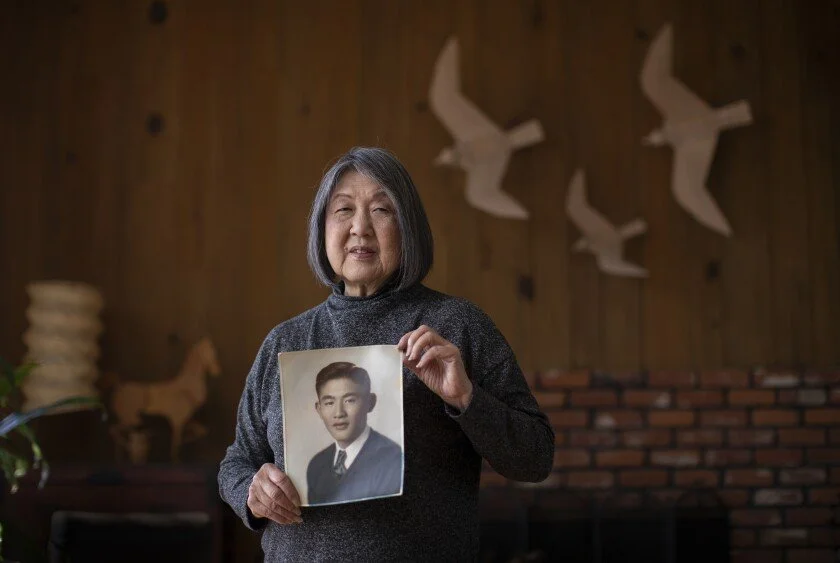USC Honors Nisei Students
By: Kelsey Cheng ‘25
On Feb. 19, 1942, President Roosevelt signed Executive Order 9066, which authorized the forced removal of all persons deemed a threat to national security, resulting in the incarceration of Japanese Americans. Second-generation Japanese-Americans–called nisei–were forced to leave USC, denied their chance to finish their degrees, and denied academic transcripts by the university.
Now, USC is seeking to correct this historic wrong. On April 1, 2022, the university dedicated the newly-created Tribute Rock Garden to Nisei students. President Carol Folt will also posthumously awarded honorary degrees to Nisei students, making an exception to university policy against posthumous degrees. While some living Nisei students received honorary degrees in 2012, the university has failed to acknowledge the late Japanese American students deprived of their degrees.
The Dedication
The dedication took place at the Tribute Rock Garden, located at 34th Street and Trousdale Parkway. Family members of the Nisei students, university officials, and community leaders filled the seats.
With speeches from President Folt, Varun Soni, and Jonathan Kaji, personal stories about the Nisei students unfolded, one by one. Among the students included: Henry Kondo, a USC pharmaceutical student and 442nd Regiment soldier; Jiro Oishi, a senior studying business; John Fujioka, a dental school student. Not only did they face brutal conditions in internment camps, racism and prejudice persisted once they returned home. Under USC President Rufus B. von KleinSmid’s administration, USC did not provide transcripts for Nisei students so they could continue their education elsewhere. Descendants of Nisei students sit proudly in the stands and will accept their predecessors’ degrees later in the evening.
I was surprised to hear that these Nisei, who were deprived of their USC degree, had no ill will against the university. According to family members and friends, they still rooted for the USC football team and fondly reminisced about their college days. The university that you loved so much––where you considered home––now turned its back on you.
“We must never forget what happened in those internment camps. Memory is one of the primary deterrents to repeating injustice.”
President Carol Folt
The Garden
The peaceful garden, situated by the Amy King Dundon-Berchtold University Club, is a stark contrast to the usual hustle and bustle of the northeast corner of UPC. It was designed by landscape architect Calvin Abe, third-generation Japanese-American, whose parents were also sent to detention centers. Trees and greenery line the stone pathway, and a series of boulders lay in the middle.
At the entrance of the garden, a Japanese proverb is engraved on a boulder: 石の上にも三年, meaning three years on a (cold) stone (will make the stone warm). Even if the road is long and difficult, we must persevere. For 15 years, Jonathan Kaji, former president of the USC Asian Pacific Alumni Association, waited on his stone and continuously pushed the university to acknowledge their wrongdoings since 2007.
“If I knew it meant three times five, I might have taken a step back,” he says.
This apology was not a sudden decision by the university. Rather, it has taken a decade and a half of perseverance and community support. Demonstrating gaman, a Japanese term for "enduring the seemingly unbearable with patience and dignity", the Japanese-American community has finally received a long-awaited apology.
Reflection
Pic Credit: LA Times
After walking through the rock garden and talking to the Nisei student’s family members, I felt a wave of emotions. Sadness. Guilt. Hope. It’s easy to blame this blatant act of hate on the war or a certain administration, but at the end of the day, it is our responsibility as a university to admit fault, apologize, and foster an anti-racist environment moving forward. As a second-generation Japanese-American who did not have family in the U.S. during WW2, I do not share the intergenerational memory or trauma of Japanese internment. I am privileged and honored to learn more about my history and the lingering effects of anti-Asian rhetoric in today’s world. I hope that this belated acknowledgment will help bring closure to the families of Nisei students and serve as a reminder to the university that there is no neutral stance on racism.
”A place to relax and reconsider what happened in the past, an expression of perseverance and hope.”Calvin Abe
Want more from Trojans 360?
Visit Trojans 360 on Facebook & Twitter to stay up to date with more student content!
You can also Ask A Trojan an anonymous question, and we’ll try to answer it in a future post!
And don’t forget to follow us on Instagram!
Trojans 360 is USC’s official student-run blog. Content created by students, for students.



